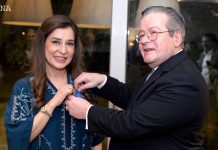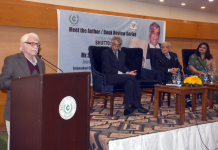Attorney General of Pakistan Anwar Mansoor Khan and the government’s chief spokesperson Firdous Ashiq Awan held a press conference on Tuesday following the special court’s verdict on the Musharraf high treason case in which the former military ruler was sentenced to death.
The attorney general said that the verdict raises questions such as “what the rush was” in pronouncing the judgment which was given in absentia.
“[Musharraf] was not given a chance to record his statement under Section 342 (of the Constitution), to present his testimony and witnesses.
“Every person is guaranteed a fair trial under the Constitution,” said the attorney general.
“A trial should not just be fair but also seen to be fair,” he added.
‘Legal aspects’
Before commenting on the matter, the attorney general had warned that it must be considered that he is not speaking in favour of a particular individual or supporting anyone. “I am only going to speak of the legal aspects of the case.”
AG Khan, providing a brief backdrop of the circumstances that led to today’s verdict, said that the case was launched on the Supreme Court’s directions, under Article 6 of the Consitution which pertains to high treason.
“A special court was then formed and then a complainant — who was an interior secretary — filed a complaint that Musharraf had violated the Constitution and that the matter falls within Article 6, therefore a high treason case must be made against him.”
He recalled that Musharraf was in Pakistan when the charges against him were announced and had filed some petitions requesting that others involved in the decision to impose an emergency also be made a party to the case.
AG Khan said that following the 18th Amendment, in which Article 90 was modified, the president was no longer given the authority by the federal government to file a complaint.
“Because he could not file a complaint, the action taken against Musharraf was void from the beginning and could not have been carried out lawfully.”
“Musharraf is bed-ridden and is in the ICU at a hospital. So this is another major issue: when you know a person is hospitalised, in his absence was it right to announce this judgment or not?” he said, as he continued to explore the legality of the verdict.
















